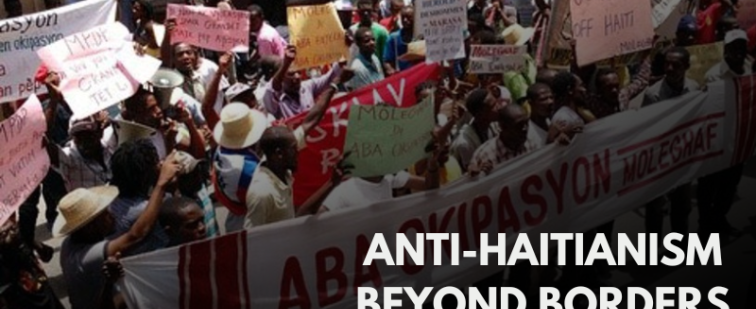Home
The mainstream media is howling over Hugo Chávez's bid to change the constitution for a third term, while coverage of Colombia's Álvaro Uribe, a staunch U.S. ally, to do the same raises few, if any, questions in the media. U.S. news coverage of parallel political events in Colombia and Venezuela offers an opportunity to test the usefulness of Edward Herman and Noam Chomsky’s “propaganda model,” developed in their 1988 book Manufacturing Consent: The Political Economy of the Mass Media.
In an open letter to the Board of Directors of Human Rights Watch, over 100 experts on Latin America criticized the organization's recent report on Venezuela, A Decade Under Chávez: Political Intolerance and Lost Opportunities for Advancing Human Rights in Venezuela, saying that it "does not meet even the most minimal standards of scholarship, impartiality, accuracy, or credibility."
A recent massacre of riders on a passenger bus was a painful reminder that violence in Guatemala is out of control. Homicide rates now surpass even those of the country's bloody civil war. Savage violence is affecting all sectors of society and is being perpetrated by a dizzying array of sources—common criminals, narco-traffickers, street gangs, and the state security forces. Sadly, another generation of Guatemalans is growing up in a society consumed by violence.
With a mandate from the U.S. public and the voters of Florida, Barack Obama has the perfect opportunity not only to keep his promise to end restrictions on Cuban American travel and remittances; he has the political capital to pursue an even more audacious approach. In so doing, he may be able to count on support from a majority of Cuban Americans, according to a brand new survey conducted by Florida International University (FIU).
Writing a thesis paper is normally the arduous culmination of years of study for most graduate students. For Lucía Morett of the National Autonomous University of Mexico, it turned into a fiery nightmare. While studying popular song and theater in Latin American guerrilla movements, she barely survived Colombian jets' aerial bombing of the jungle camp where she was staying. Four of her fellow students weren't as lucky. This is her story.
While the government stubbornly denies the existence of paramilitary groups, the people of Tierralta in the northern Colombian department of Córdoba know otherwise. Tierralta's residents are facing a wave of killings and massacres at the hands of these murderous gunmen. With nearly four million internal refugees, Colombia already has the world's second-largest humanitarian crisis, and the paramilitary resurgence is already making things much worse.
We the undersigned are North American academics who study Latin America. We wish to make known several concerns with regard to the electoral process now underway in El Salvador and which include legislative elections in January 2009 and presidential elections in March 2009. In particular, as academics who have studied electoral processes throughout the hemisphere, we believe that there are a minimal set of norms and conditions necessary for elections to be free, transparent, and democratic.
The growing demand in the United States for immigrant-detention beds has led to a new “virtual” form of detainment meant to save the government money. The Intensive Supervision Appearance Program (ISAP), launched in 2004 as an alternative to detainment, offers some undocumented immigrants the option to be released from detention after they agree to a series of strict rules, including a 12-hour home curfew, three face-to-face meetings per week with their caseworker, and unannounced telephone calls and visits.
President-elect Barack Obama should rescind the Monroe Doctrine, which is 185 years old this week. Obama would do well to depart from the bipartisan consensus of the Monroe Doctrine and truly chart a new course for change, one that respects the independence of Latin American countries and one that is in keeping with the values that he espouses. In any event, Latin America is leaving Washington behind.












